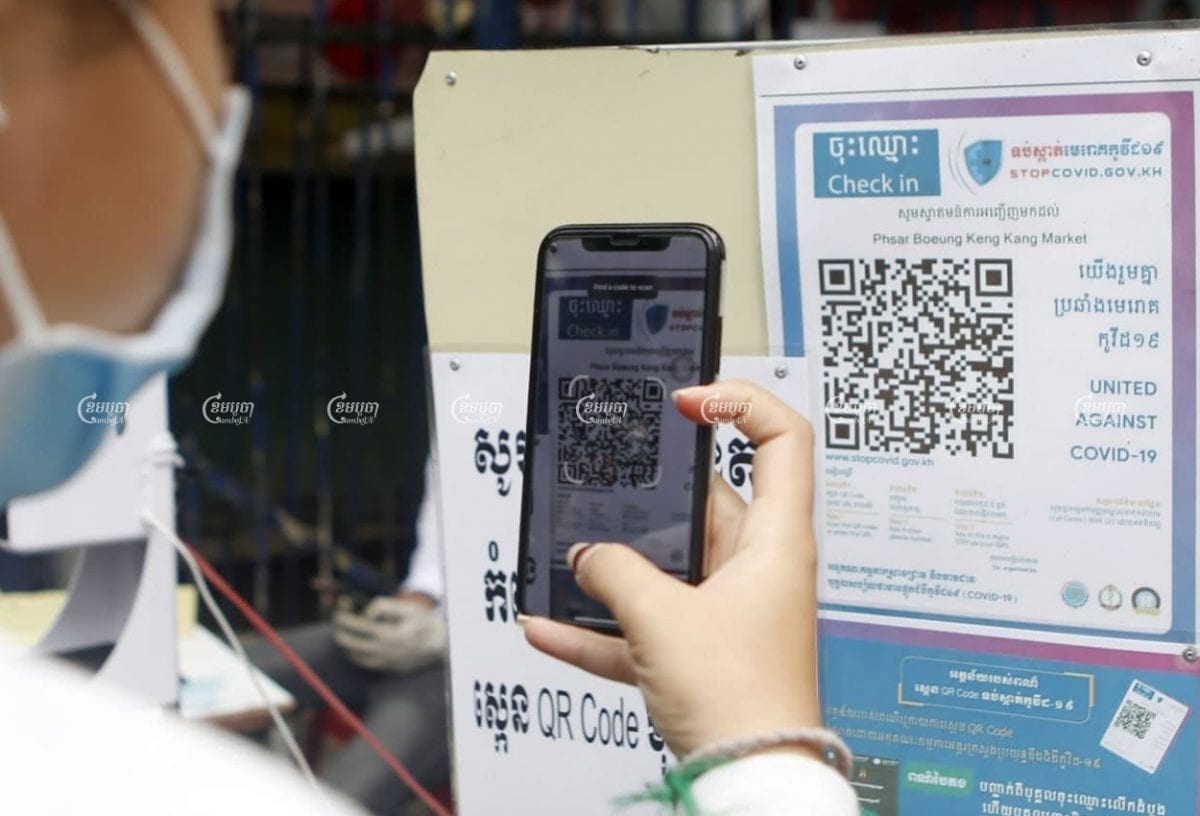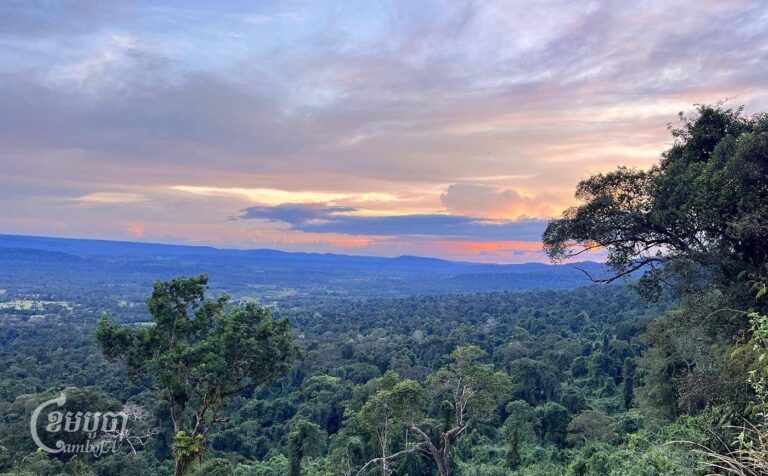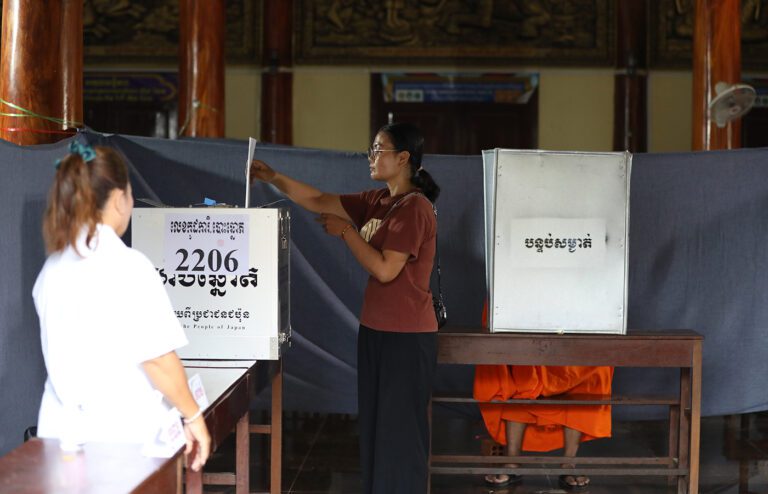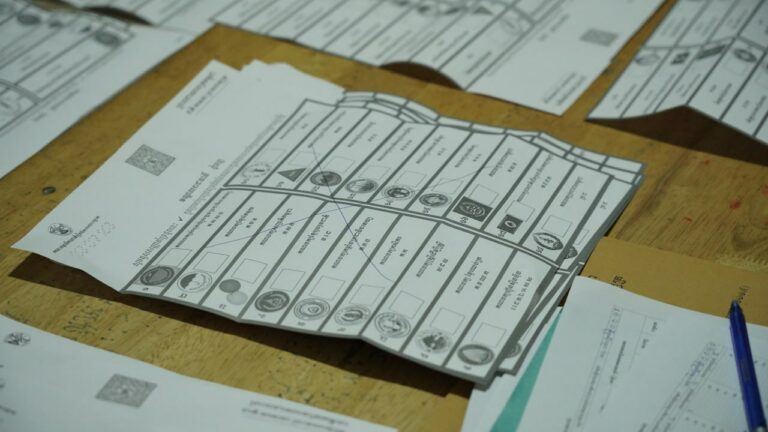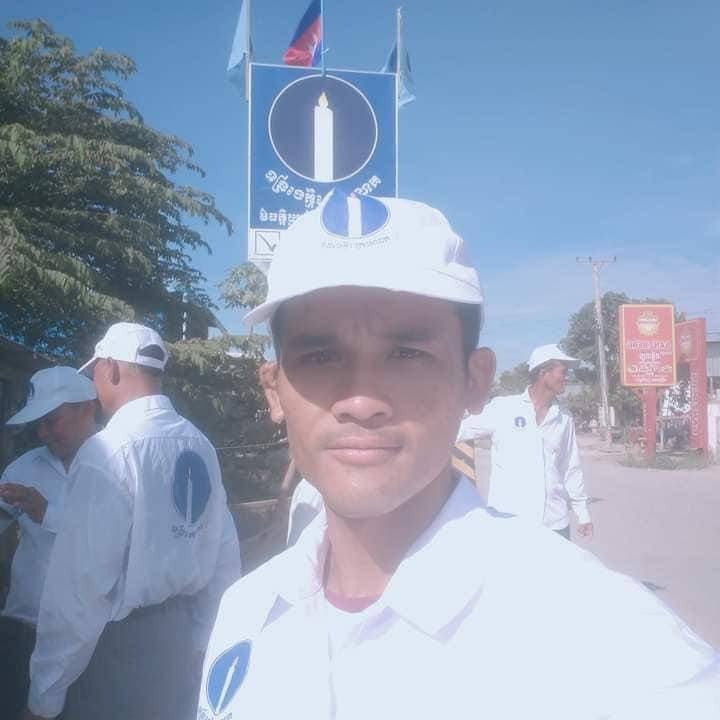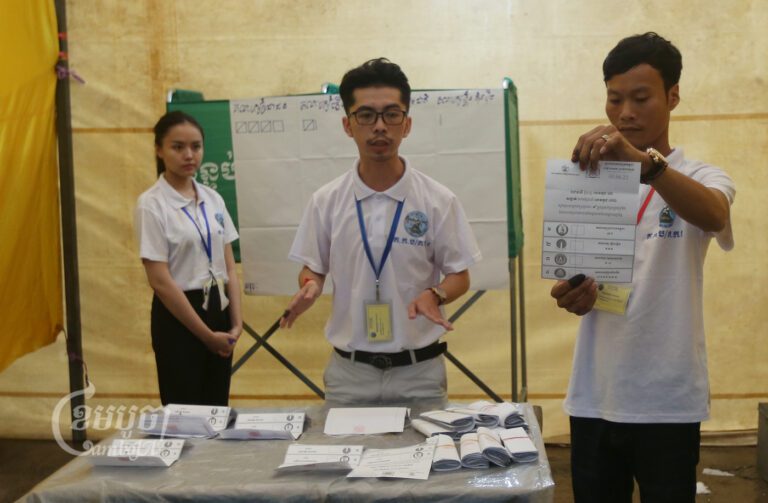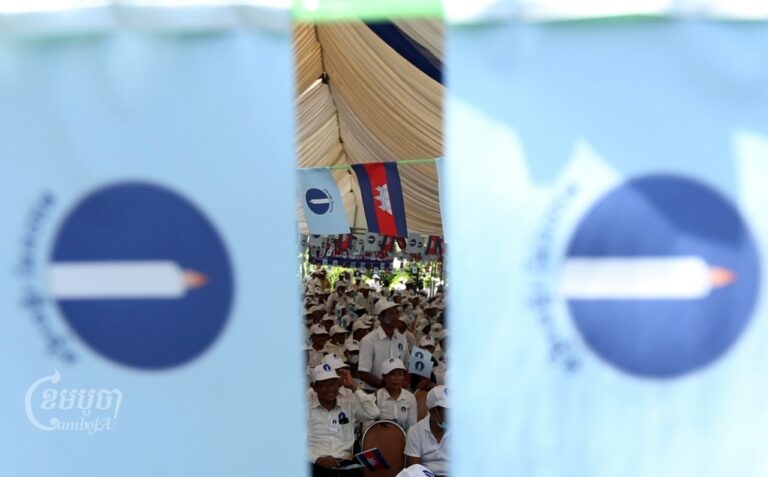New York-based, Human Rights Watch (HRW) said the Cambodian government’s “Stop Covid-19” digital contact tracing system “raises serious privacy and other human rights concerns,” and urged less invasive measures as Cambodia battles a new wave of Covid-19.
Introduced in February, the system encourages customers, workers, and visitors to scan a QR Code when entering an establishment. This allows for tracing should an infection later be found, but the Ministry of Post and Telecommunications has also said it would permit the government to see if someone is violating quarantine orders — an offense that now comes with controversial new criminal charges.
Thus far, more than 165,000 restaurants, hotels, bars, factories, offices, and more have registered with the Ministry of Post and Telecommunications and Ministry of Health to receive a QR Code, and at least 13,300 people have checked in through those codes, according to the Post Ministry’s Facebook page.
Phil Robertson, HRW’s deputy Asia director said that the QR tracing system is “ripe for rights abuses because it lacks privacy protections for personal data.”
“These concerns are heightened by the government’s stepped-up online surveillance of Cambodians since the outset of the pandemic, putting government critics and activists at greater risk,” he said.
The ministries should explain “how the data collected through the QR Code system is used, who has access to the data and for what purpose, the measures taken to secure the data, and the period for which the data is stored,” the HRW statement added.
As of April 6, Cambodia has recorded 2,824 cases of Covid-19, with 22 deaths. The outbreak started with a single February 20 community event. Prior to that, Cambodia had seen no Covid-19 deaths since the start of the global pandemic. To contain the transmission, the Phnom Penh municipal authority and some provinces have introduced a two-week curfew from 8pm to 5am.
Minister of Post and Telecommunications Chea Vandeth refused to comment by phone and asked to be sent a letter for inquiries.
But Phay Siphan, a Council of Ministers spokesperson, said the QR Code system exists solely to protect lives. He said HRW should focus their energies on the measures taken or not taken in the US, which has among the most Covid-19 cases and deaths in the world.
“They have the right to speak out, but the Cambodian government prioritizes to protect the lives of Cambodian people first and we take all and any measures to contain the pandemic. We want the world to recognize what Cambodia can do,” he said.
The government recently passed a controversial law intended to halt the spread of Covid-19, which comes with steep punishment for those who fail to follow health measures — including up to 20 years imprisonment. The law has been criticized by rights group as well as the outgoing UN Special Rapporteur for Human Rights.
Chak Sopheap, the executive director at the Cambodian Center for Human Rights (CCHR) said that the government has legal obligations to respect and promote both the right to privacy and the right to public health.
“The absence of clear legislation on this QR Code system is therefore a red flag, as it appears that no safeguards have been put in place to prevent arbitrary restrictions of the right to privacy through unnecessary data processing or retention,” she said adding that the government must therefore ensure its COVID-19 mitigation policies sufficiently balance the right to health against the right to privacy.
According to Access Now, governments around the world have been using data and technology in their efforts to contain the spread of the virus since late 2019.
Ngeth Moses, a digital security trainer and blogger said that It is very necessary to introduce digital systems to collect necessary health information during the pandemic.
“When the manual contact tracing does not work as the number of Covid-19 cases hugely increases every day, they have to use technology to assist in collecting data in mass volumes,” he said.
However, the government must limit who can access the data, for example, only to the public health authority.
“They need to make sure that data is stored at safe place and a sunset clause needs to be set up to end data collection and to delete it from the system when the time is up,” he said.
Sok Haingkheang, a third-year university student in Phnom Penh said he thinks the QR Code system is necessary so the government can control the spread of Covid-19. But he said he would like to know how his privacy is being protected.
“I think it is good because it keeps records of the number of quests in and out of one place and it also easy for the government to track Covid-19,” he said. But he said he had privacy concerns.
“I am afraid that when we scan it just not track the locations, but it may track other data,” he added.


